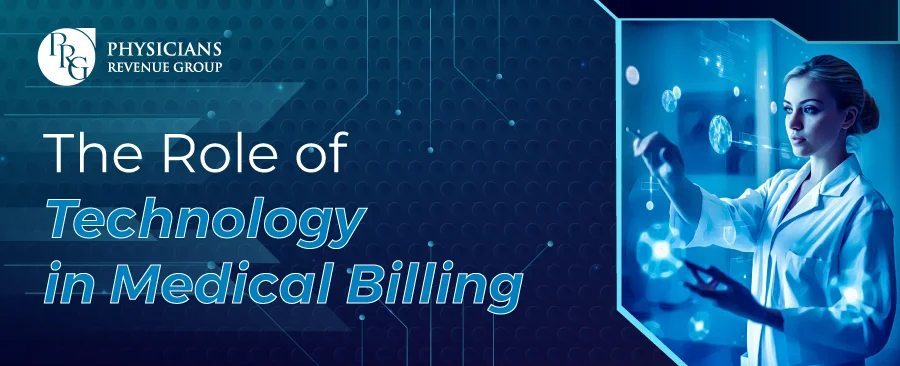
Email: info@prgmd.com | Call: +1 (630) 242-6474
Business hours: 9:00 to 5:00 | Monday to Friday
Email: info@prgmd.com | Call: +1 (630) 242-6474
Business hours: 9:00 to 5:00 | Monday to Friday

Table of Contents
ToggleThe role of modern technology in medical billing services is massive, and it has undoubtedly altered how the healthcare business functions. From the benefits of automation in diagnoses and billing processes to the use of block chain technology in medical billing, the staggering influence of technology is offering tools to reduce the work burdens of the healthcare staff.
The use and evolution of medical billing technology have paved pathways toward successful and efficient billing operations, significantly boosting patient health outcomes and satisfaction levels.
Some of the applications and benefits of using technology in medical billing include:
One of the most essential roles of technology in medical billing is the digitization of medical records. Automation in healthcare billing is a massive game-changer for professionals, as it is replacing paper notes with electronic health records. The particular industry-wide change has made processes better for many jobs, including:
Mostly, staff nurses are in charge of entering patient data into a central, digital-computerized system. Medical coders and billers forward medical claims to insurance provider companies and then update patient data by citing diagnostic codes, such as the test results. It facilitates patients’ access to their information at the click of a button, making the process highly convenient.
Efficient payment processing is faster to reduce errors in claims and overall billing process. Furthermore, the below can also help reduce the risk of errors in healthcare processes:
These all can result in reducing the number of denied claims.
Remember how your practice interacted with technology only five years ago? And then how it has evolved massively today. Technology in medical billing will continuously evolve and iterate, assisting administrative and billing experts in streamlining processes. It can be beneficial for capitalizing on reimbursements. Furthermore, automation in healthcare billing reduces physicians’ and staff workload, removes errors in billing claims, creates trust between patients and doctors, and improves practice revenue.
Technological advancements are improving diagnostics in every way – including bettering:
Diagnostic technology in healthcare is essential in addressing the most significant healthcare issue: chronic illnesses. These diseases include diabetes and heart disease, all prevalent in the US. However, the use of technology can reduce the severity of chronic diseases.
Share:
Categories
Recently Added

What is an ABN in medical billing?

What does a Clearinghouse do During Claims Submission?

What is EOR in Medical Billing?
We Would Love to Assist You!
We treat your data confidentially and don’t share any information with a third party.